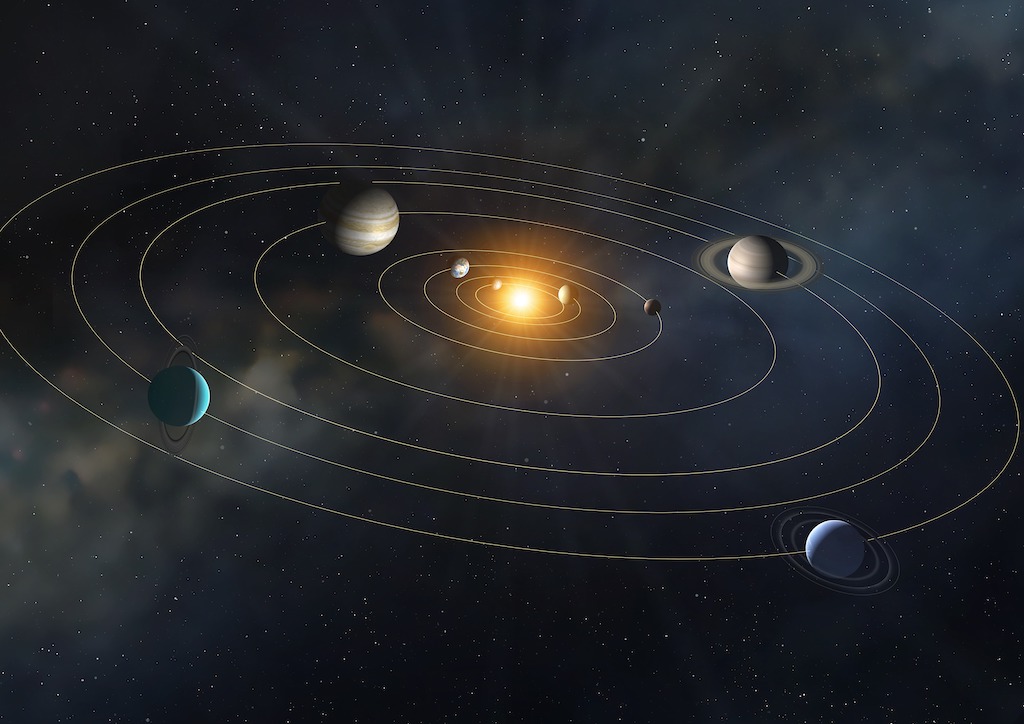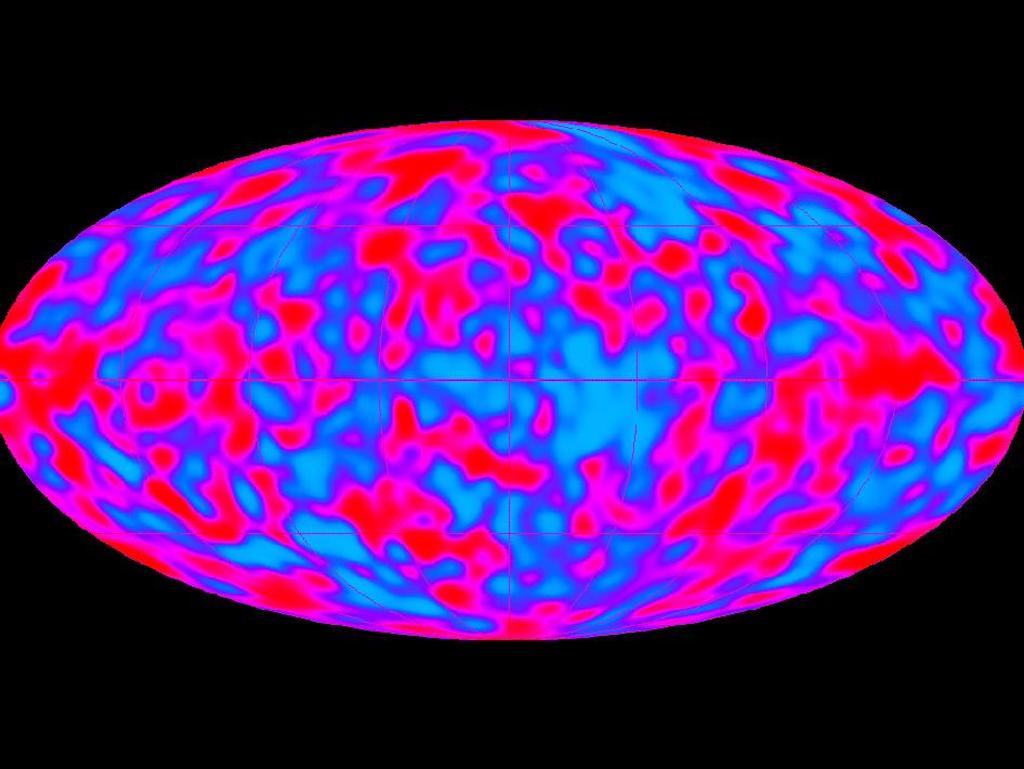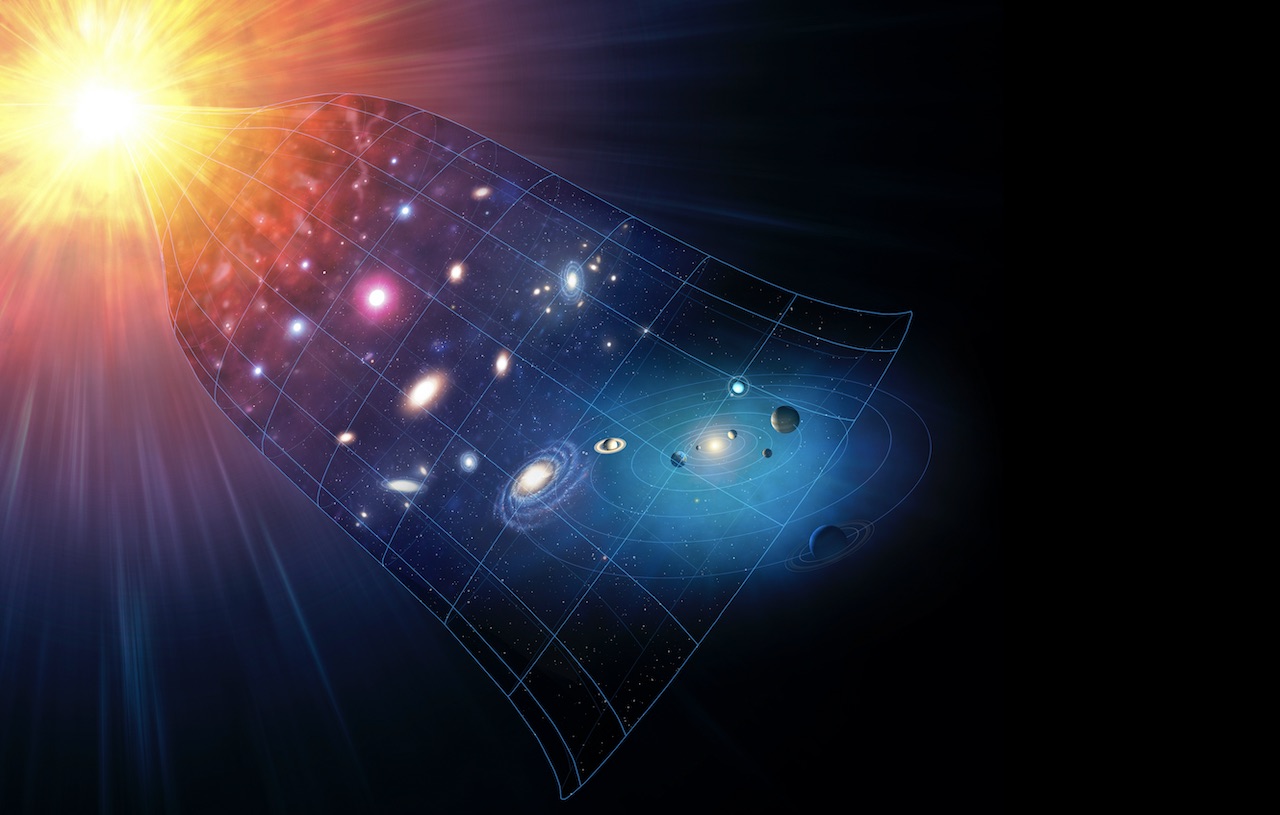Cosmology is a branch of astronomy that involves the origin and evolution of the universe, from the Big Bang to today and on into the future. According to NASA, the definition of cosmology is “the scientific study of the large scale properties of the universe as a whole.”
Cosmologists puzzle over exotic concepts like string theory, dark matter and dark energy and whether there is one universe or many (sometimes called the multiverse). While other aspects astronomy deal with individual objects and phenomena or collections of objects, cosmology spans the entire universe from birth to death, with a wealth of mysteries at every stage.
History of cosmology & astronomy
Humanity’s understanding of the universe has evolved significantly over time. In the early history of astronomy, Earth was regarded as the center of all things, with planets and stars orbiting it. In the 16th century, Polish scientist Nicolaus Copernicus suggested that Earth and the other planets in the solar system in fact orbited the sun, creating a profound shift in the understanding of the cosmos, according to The Royal Society. In the late 17th century, Isaac Newton calculated how the forces between planets — specifically the gravitational forces — interacted.

The dawn of the 20th century brought further insights into comprehending the vast universe. Albert Einstein proposed the unification of space and time in his General Theory of Relativity. In the early 1900s, scientists were debating whether the Milky Way contained the whole universe within its span, or whether it was simply one of many collections of stars.
Edwin Hubble calculated the distance to a fuzzy nebulous object in the sky and determined that it lay outside of the Milky Way, proving our galaxy to be a small drop in the enormous universe, according to Scientific American. Using General Relativity to lay the framework, Hubble measured other galaxies and determined that they were rushing away from the us, leading him to conclude that the universe was not static but expanding.
In recent decades, cosmologist Stephen Hawking determined that the universe itself is not infinite but has a definite size. However, it lacks a definite boundary. This is similar to Earth; although the planet is finite, a person traveling around it would never find the “end” but would instead constantly circle the globe. Hawking also proposed that the universe would not continue on forever but would eventually end.
Cosmological missions & instruments
Launched in November 1989, NASA’s Cosmic Background Explorer (COBE) took precise measurements of radiation across the sky. The mission operated until 1993.
Although NASA’s Hubble Space Telescope is probably best known for its astounding images, a primary mission was cosmological. By more accurately measuring the distances to Cepheid variables, stars with a well-defined ratio between their brightness and their pulsations, Hubble helped to refine measurements regarding how the universe is expanding. Since its launch, astronomers have continued to use Hubble to make cosmological measurements and refine existing ones.

Thanks to Hubble, “If you put in a box all the ways that dark energy might differ from the cosmological constant, that box would now be three times smaller,” cosmologist Adam Riess of the Space Telescope Science Institute said in a statement. “That’s progress, but we still have a long way to go to pin down the nature of dark energy.”
NASA’s Wilkinson Microwave Anisotropy Probe (WMAP) was a spacecraft that operated from 2001 to 2010. WMAP mapped tiny fluctuations in the cosmic microwave background (CMB), the ancient light from the early universe, and determined that ordinary atoms make up only 4.6 percent of the universe, while dark matter makes up 24 percent.
“Lingering doubts about the existence of dark energy and the composition of the universe dissolved when the WMAP satellite took the most detailed picture ever of the cosmic microwave background,” said cosmologist Charles Seife in the journal Science.
The European Space Agency’s Planck space mission ran from 2009 to 2013 and continued the study of the cosmic microwave background.
ESA is currently developing the Euclid mission, which should launch in 2023, according to ESA’s fact sheet. Euclid will study dark matter and dark energy with greater precision, tracing its distribution and evolution through the universe.
“At the heart of the mission is one of the billion pound questions of physics,” the ESA’s David Parker said in a statement.
Common cosmological questions
What came before the Big Bang?
Because of the enclosed and finite nature of the universe, we cannot see “outside” of our own universe. Space and time began with the Big Bang. While there are a number of speculations about the existence of other universes, there is no practical way to observe them, and as such there will never be any evidence for (or against!) them.
Where did the Big Bang happen?
The Big Bang did not happen at a single point but instead was the appearance of space and time throughout the entire universe at once, according to Live Science.

If other galaxies all seem to be rushing away from us, doesn’t that place us at the center of the universe?
No, because if we were to travel to a distant galaxy, it would seem that all surrounding galaxies were similarly rushing away. Think of the universe as a giant balloon. If you mark multiple points on the balloon, then blow it up, you would note that each point is moving away from all of the others, though none are at the center. The expansion of the universe functions in much the same way.
How old is the universe?
According to data released by the Planck team in 2013, the universe is 13.8 billion years old, give or take a hundred million years or so, according to the Norwegian University of Life Sciences. Planck determined the age after mapping tiny temperature fluctuations in the CMB.
“Patterns over huge patches of sky tell us about what was happening on the tiniest of scales in the moments just after our universe was born,” said Charles Lawrence, the U.S. project scientist for Planck, in a statement.
Will the universe end? If so, how?
Whether or not the universe will come to an end depends on its density — how spread out the matter within it might be. Scientists have calculated a “critical density” for the universe. If its true density is greater than their calculations, eventually the expansion of the universe will slow and then, ultimately, reverse until it collapses. However, if the density is less than the critical density, the universe will continue to expand forever, Space.com previously reported.
Which came first, the galaxy or the stars?
The post-Big Bang universe was composed predominantly of hydrogen, with a little bit of helium thrown in for good measure, according to NASA. Gravity caused the hydrogen to collapse inward, forming structures. According to the Department of Physics and Astronomy at Uppsala University, the first stars are likely to have formed before the first galaxies, when the universe was about 100 million years old.
Additional resources
You can read more about cosmology and the foundations of the Big Bang model in Wilkinson Microwave Anisotropy Probe’s Introduction to Cosmology by NASA. For more answers to common cosmology questions, go to NASA’s Ask an Astrophysicist page.
Bibliography
“Edwin Hubble and the Expanding Universe”. Scientific American (1993). https://www.jstor.org/stable/24941551
“Illuminating the Dark Universe”. Science (2003). https://www.science.org/doi/10.1126/science.302.5653.2038
“The Collision Time of the Observable Universe is 13.8 Billion Years per Planck time: A New Understanding of the Cosmos based on Collision Space-Time”. Norwegian University of Life Sciences (2021). https://www.researchgate.net/publication/350874725
“The First Stars and Galaxies”. Department of Physics and Astronomy, Uppsala University (2021). https://www.physics.uu.se/research/astronomy-and-space-physics/research
“The work of Nicolaus Copernicus”. Proceedings of The Royal Society A (1974). https://royalsocietypublishing.org/doi/abs/10.1098/rspa.1974.0009
